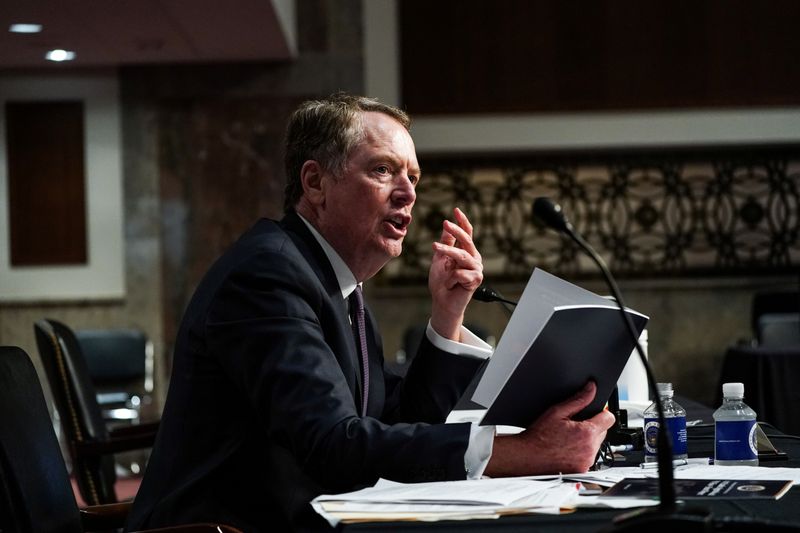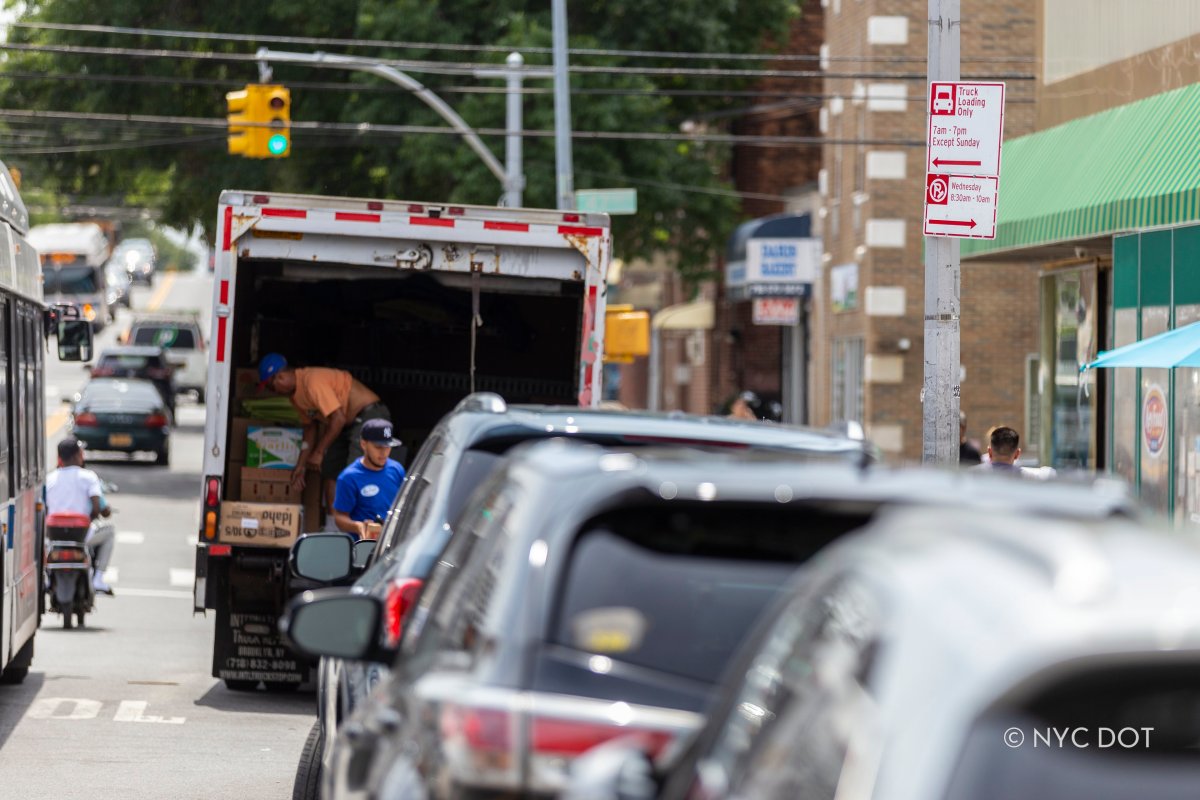WASHINGTON (Reuters) – President-elect Joe Biden should keep pressing China to stick to the “Phase 1” trade deal and use tariffs as leverage, U.S. Trade Representative Robert Lighthizer told Reuters, adding that Beijing has done a “reasonably good job” implementing parts of the deal.
In a rare interview late on Tuesday, Lighthizer defended the Trump administration’s record in shredding the status quo on trade and imposing unilateral tariffs on $370 billion worth of Chinese goods.
Beijing signed the Phase 1 trade deal nearly a year ago after months of tariffs, promising to boost purchases of U.S. agricultural and manufactured goods, energy and services by $200 billion above 2017 levels over two years.
The tariffs have cost U.S. importers $71.6 billion since they started in July of 2018, according to U.S. Customs data https://www.cbp.gov/newsroom/stats/trade.
They forced companies to tear up supply chains, roiled financial markets and slowed economic growth well before the coronavirus pandemic hit.
Asked what Biden, declared winner of the Nov. 3 presidential election by the Electoral College on Monday, should do with the Phase 1 deal, Lighthizer said: “I would hold their feet to the fire on Phase 1.”
“I think in some parts they (China) have done a reasonably good job, in other parts they haven’t,” Lighthizer said.
He said that Beijing is well behind on its purchase commitments, partly due to the pandemic. As of October, Beijing’s purchases of U.S. goods and services were about half the level the Phase 1 deal requires, on a pro-rated annual basis, according to the Peterson Institute for International Economics.
“I would use the dispute settlement process to resolve specific issues,” Lighthizer said. “I would keep the tariffs in place for sure. I think if you see the tariffs dissipating that’s a signal that we’re not serious about understanding that China is a strategic adversary.”
Biden said in August he thought the Phase 1 deal was “failing.” But in December, he told a New York Times columnist that he did not plan “any immediate moves” to change the deal or the tariffs on Chinese goods.
Biden will take office on Jan. 20.
AMERICA FIRST
Lighthizer, 73, a veteran trade lawyer, said Trump’s “America First” trade stance changed the objective of U.S. trade policy “from servicing corporations who do business overseas to try to drag, or lure, more manufacturing back to the United States.”
He cited as an example the successor to the North American Free Trade Agreement that USTR negotiated, which requires automakers to source more of their components in the United States, Canada and Mexico.
Economic data thus far shows that Trump’s tariff campaigns have had little impact on the overall U.S. trade deficit for goods and services, however, and manufacturing job growth had slowed to a trickle even before millions were pushed out of work after shutdowns to curb the spread of the coronavirus..
Most important, Lighthizer said, Trump’s efforts “have changed the way people think about China in the economic sphere,” causing businesses to rethink their reliance on Chinese supply chains.
Since he was first appointed to be the top U.S. trade official at the beginning of the Trump administration, Lighthizer has blamed the World Trade Organization for failing to curb China’s trade abuses and rampant subsidies to state firms.
As a result of that campaign, there is now broad agreement on the need for WTO reforms, he said.
The United States has rendered the WTO’s Appellate Body inoperable by blocking judge appointments after years of complaints about decisions perceived to be against U.S. interests.
Lighthizer said the WTO may be better off with a simpler binding dispute settlement system.
“Then you just have one-off arbitrations, and you’ll decide who wins and loses but you won’t create a law that applies to other cases,” he said.
(Reporting by David Lawder and Andrea Shalal; Editing by Heather Timmons and Sonya Hepinstall)



















